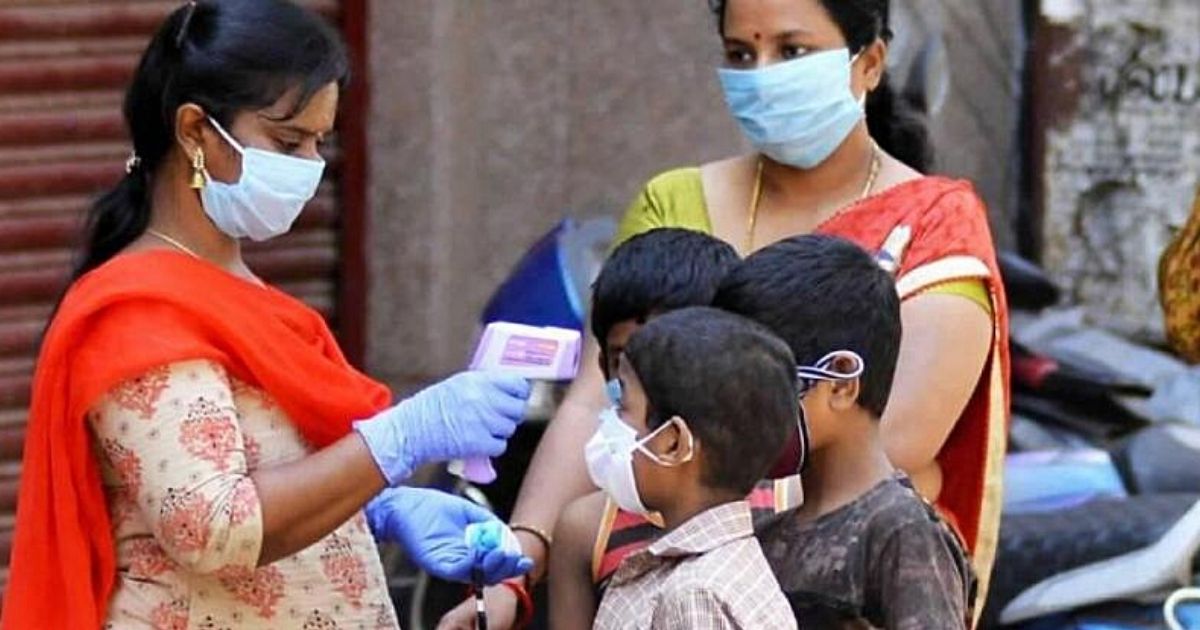
Image Credits: The Indian Express
69% Children In Chandigarh Infected With COVID-19 In Past
Writer: Nishit Navin
I have lived in 7 cities across India. I completed my graduation with a triple major in English, Journalism, and animation. Currently, I am doing my master's in journalism from SIMC, Pune.
Chandigarh, 12 July 2021 4:49 AM GMT
Editor : Palak Agrawal |
Palak a journalism graduate believes in simplifying the complicated and writing about the extraordinary lives of ordinary people. She calls herself a " hodophile" or in layman words- a person who loves to travel.
Creatives : Palak Agrawal
Palak a journalism graduate believes in simplifying the complicated and writing about the extraordinary lives of ordinary people. She calls herself a " hodophile" or in layman words- a person who loves to travel.
According to the interim result of the sero survey, as many as 69% of children, from age six to 18, had developed natural antibodies against COVID-19.
COVID-19 cases are on a decline in Chandigarh. About 10 people tested positive for the virus in the Tricity on Sunday, July 11, which was the lowest in nearly 13 months.
According to the Hindustan Times, a single fatality was reported in Mohali on Sunday. Meanwhile, both Chandigarh and Panchkula have reported only one death each since the beginning of July.
As per the data (available on COVID19india.org), Chandigarh has a recovery rate of 98.5 per cent.
Sero Survey Data
Post Graduation Institute of Medical Education and Research (PGIMER), Chandigarh, in its interim result of the sero survey, found that 69 per cent of the children in the city had developed natural antibodies against COVID-19.
The survey focused on children from age six to 18. The Union Territory's administration funded the PGIMER study, which began on April 24, reported The Indian Express.
Out of the total 756 blood samples from children collected so far, 519 samples tested positive for IgG antibodies against SARS-CoV-2, which translated to a 69 per cent positivity rate—stating that more than half had been previously infected.
Positivity Rate Higher in Rural Areas
The survey found that rural areas had a higher rate of positivity among children (73 per cent) than urban areas (65 per cent). Antibodies were found in 262 children from rural areas out of the 360 tested. Meanwhile, in the urban areas, out of the 396 children tested, antibodies were found in 257 of them.
Hindustan Times reported that the institute was planning to test 2700 samples, which will give a clear picture of the actual percentage of children infected by COVID-19.
PGI Director Quashes Claims of Deadlier Third Wave On Children
Experts have believed that the third wave of the virus could be deadlier for children who remain unvaccinated against the virus. Many states have already started planning to combat such a situation with facilities especially made to treat children during the third wave.
PGI director, however, has junked the idea that the next wave will affect children more.
"A majority of at least 69 per cent children acquired the infection from their family members during the second wave. This data proves that children have acquired natural immunity against the infection and there will be no exclusivity for this age group in the third wave," said Prof Jagat Ram, Director, PGI, told The Tribune.
He further said that despite a high positivity rate, fatality had been low among children showing that they recover quickly from the virus.
No Dedicated Centres for Children In Punjab
During the second wave, Hindustan Times had reported that Punjab did not have a single specialised care centre for children infected by the virus.
Even as pediatricians and epidemiologists demanded wards for children, the administration had said that arrangements would be made as and when required.
After that, three medical colleges from the state had sent a proposal for developing special wards for children in Faridkot, Amritsar, and Patiala to tackle the third wave. Colleges sought an ₹11 Crore grant to develop level-2 and level-3 wards for children.
Also Read: Here Is All You Need To Know About Lambda, The Latest COVID Variant
 All section
All section













